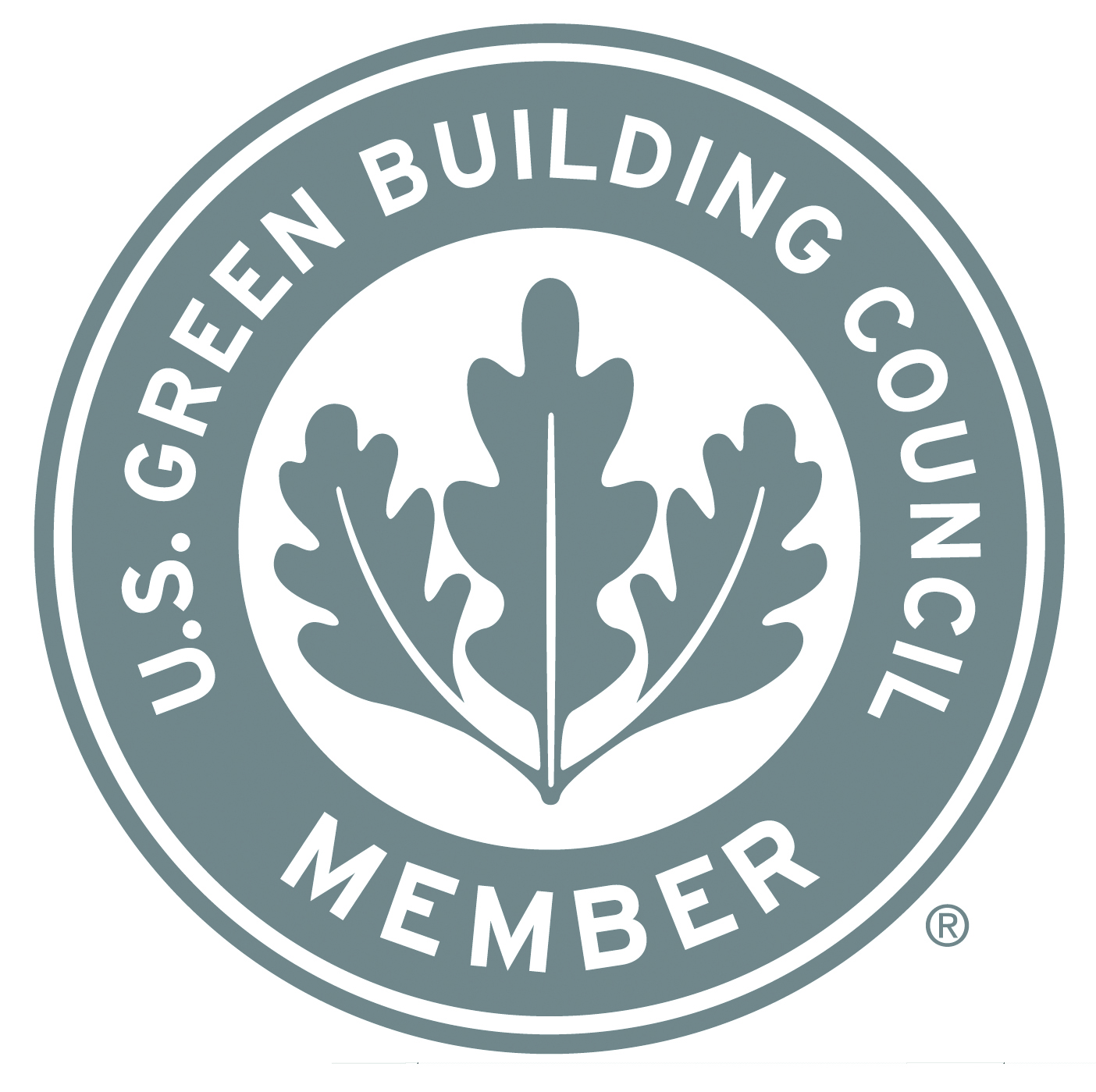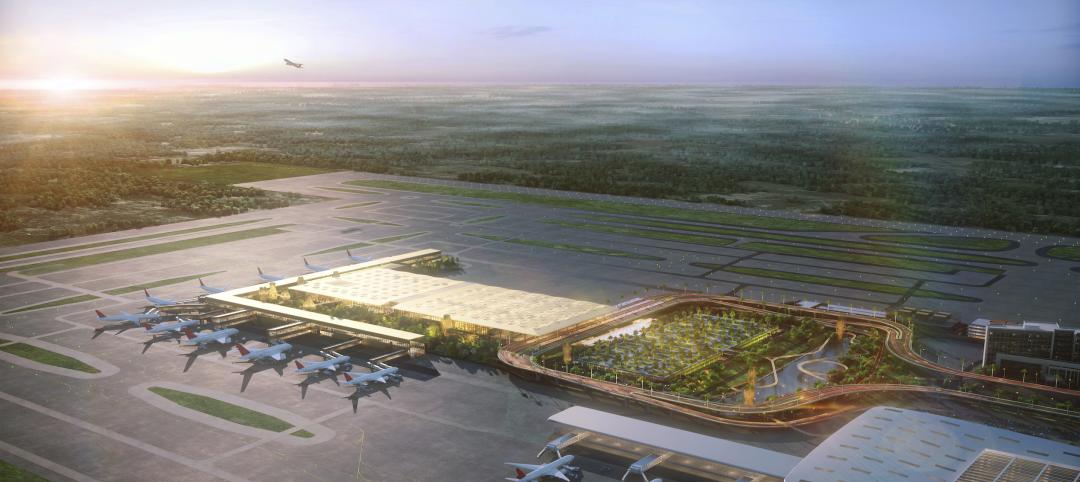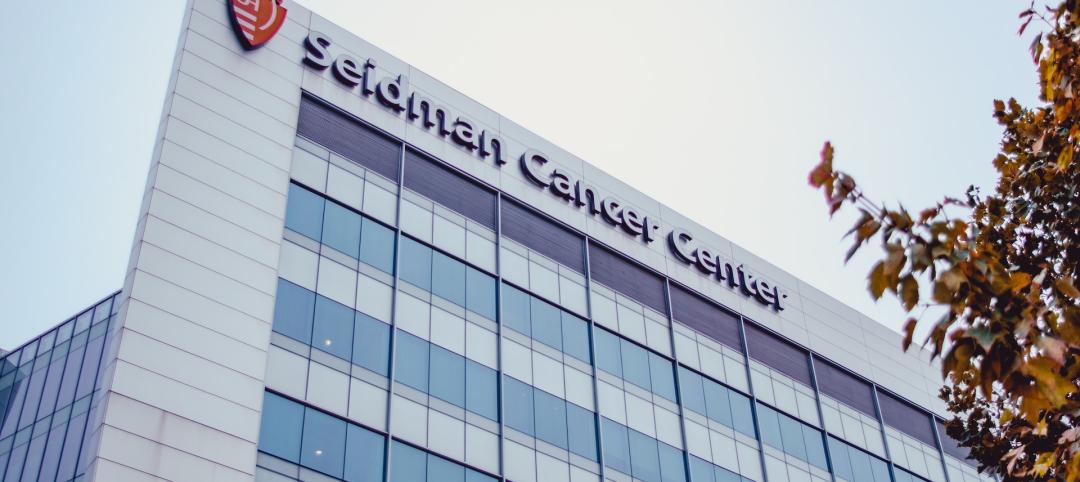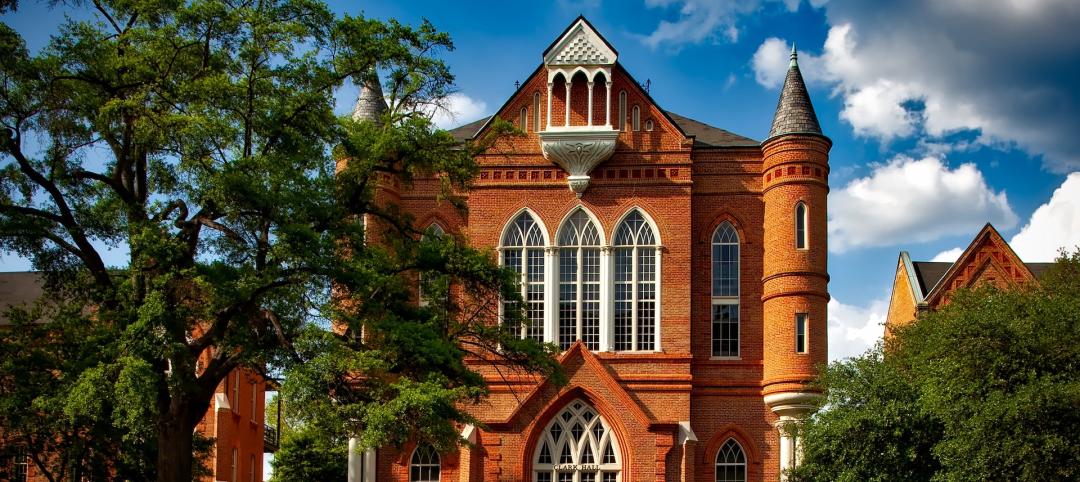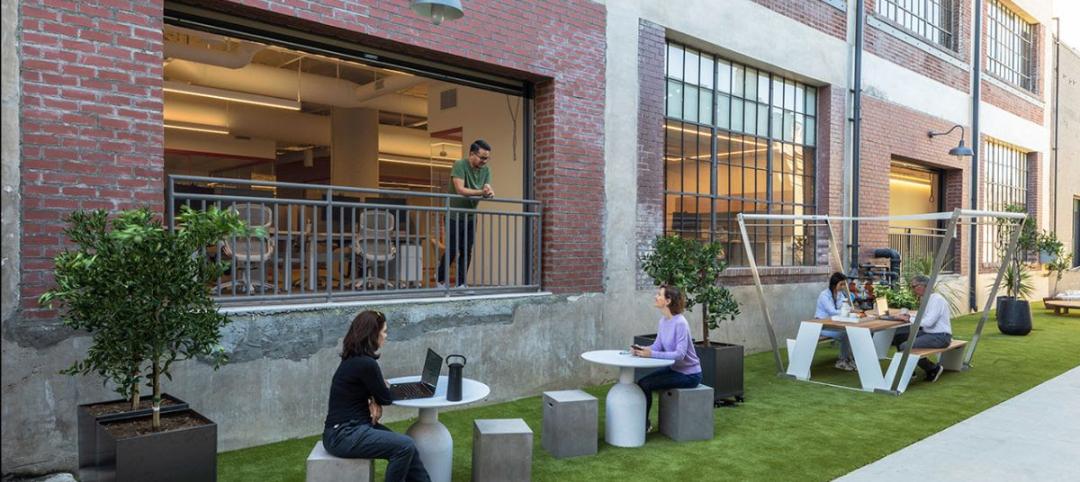The U.S. Green Building Council (USGBC) is pleased to announce New York and San Francisco as the recipients of the World Green Building Council's Government Leadership Awards for Excellence in City Policy for Green Building. Announced today at the United Nations Climate Change Conference in Durban, South Africa, the awards acknowledge international best practice in city-level government policy for green building initiatives and recognize green buildings as an important means to reduce carbon emissions.
Winners were chosen by an expert panel of judges comprised of ICLEI International, UN HABITAT and the WorldGBC.
"Buildings are responsible for approximately one-third of global carbon emissions and 40 percent of global energy usage, so the need for exemplary green building policies in the United States and throughout the world is great," said Rick Fedrizzi, president, CEO and founding chair, USGBC, and chair-elect of the World Green Building Council. "New York and San Francisco are strong models for green building policy. The United States continues to be at the forefront of the green building movement thanks in part to these shining examples of leadership."
San Francisco was honored with the Best Green Building Policy award for the San Francisco Green Building Ordinance, which requires all new commercial, residential and municipal construction to be built to the LEED green building program, and existing buildings to publicly disclose energy labels, undergo periodic energy audits and mandatory water efficiency retrofits at the time of sale. The impacts of building labeling and auditing alone are expected to reduce carbon dioxide emissions by 105,000 tons and have a 10-year net present value of approximately $1 billion. The city has also created financing options to assist the private sector in meeting its efficiency targets.
"San Francisco's innovative and comprehensive green building policies are lasting investments in the environmental and economic future of our great city," said Mayor Ed Lee. "The Green Building Ordinance employs San Francisco's design talent, as well as technological and business innovations, to ensure that we meet the market demands of the 21st century, protect the environment, and support the health and well being of our residents. Thank you to the many City staff, particularly at the Department of Building Inspection, Department of the Environment and the SF Public Utilities Commission, for their commitment to a sustainable city. I also wish to extend my appreciation to the local building industry professionals who design, construct and manage the green buildings for which we are receiving this award."
New York City received the Industry Transformation award for its Greener, Greater Buildings Plan, a component of the broader PLANYC policy that requires large commercial buildings to publicly display annual energy and water benchmarks and undergo cost-effective lighting and efficiency upgrades. The plan is expected to reduce the city's carbon dioxide emissions by 5.3 percent below 2009 levels, reduce citywide energy costs by $700 million annually by 2030 and create roughly 17,800 construction-related jobs over 10 years.
"We are honored to receive the Industry Transformation Award and also recognize the numerous private-public partnerships that made the plan's passage possible," said David Bragdon, director, New York City Mayor's Office of Long-Term Planning and Sustainability. "The Greener, Greater Buildings Plan will transform the industry because it is the first policy of its kind to aggressively target energy efficiency in large, existing buildings. We hope that this plan can be a model for other cities to follow because of the substantial environmental, economical, and social impacts that are possible on a large scale."
Other award recipients include Mexico City, Mexico; Birmingham, UK; Singapore; and Tokyo, Japan.
"Buildings represent unparalleled potential to reduce greenhouse gas emissions, and cities play a critical role in seizing this opportunity," said Jane Henley, CEO of the WorldGBC. "The Government Leadership Award entries demonstrate that all around the globe cities are implementing policies that are meeting immediate budget priorities while still addressing longer term emissions reduction goals. These cities are focusing on energy efficiency in the built environment to deliver a range of benefits, including operational savings, energy security, health and well-being to building occupants, and provide a much needed boost to the economy. We are pleased to recognize a select few for their drive and innovation." BD+C
Related Stories
Airports | Apr 18, 2023
India's mammoth new airport terminal takes ‘back to nature’ seriously
On January 15, 2023, Phase 1 of the Kempegowda International Airport’s Terminal 2, in Bengaluru, India, began domestic operations. The 2.75 million-sf building, designed by Skidmore, Owings & Merrill (SOM), is projected to process 25 million passengers annually, while providing its travelers with a healthier environment, thanks to extensive indoor-outdoor landscaping that offers serenity to what is normally a frenzied experience.
Resiliency | Apr 18, 2023
AI-simulated hurricanes could aid in designing more resilient buildings
Researchers at the National Institute of Standards and Technology (NIST) have devised a new method of digitally simulating hurricanes in an effort to create more resilient buildings. A recent study asserts that the simulations can accurately represent the trajectory and wind speeds of a collection of actual storms.
Green | Apr 18, 2023
USGBC and IWBI unveil streamlined certification pathway for LEED and WELL green building programs
The U.S. Green Building Council, Green Business Certification Inc., and the International WELL Building Institute released a streamlined process for projects pursuing certifications for the LEED green building rating system and the WELL Building Standard. The new protocol simplifies documentation for projects that are pursuing both certifications at the same time or that have already earned one certification and are looking to add the other.
K-12 Schools | Apr 18, 2023
ASHRAE offers indoor air quality guide for schools
The American Society of Heating, Refrigerating and Air-Conditioning Engineers (ASHRAE) has released a guide for educators, administrators, and school districts on indoor air quality. The guide can be used as a tool to discuss options to improve indoor air quality based on existing HVAC equipment, regional objectives, and available funding.
Data Centers | Apr 14, 2023
JLL's data center outlook: Cloud computing, AI driving exponential growth for data center industry
According to JLL’s new Global Data Center Outlook, the mass adoption of cloud computing and artificial intelligence (AI) is driving exponential growth for the data center industry, with hyperscale and edge computing leading investor demand.
Healthcare Facilities | Apr 13, 2023
Healthcare construction costs for 2023
Data from Gordian breaks down the average cost per square foot for a three-story hospital across 10 U.S. cities.
Higher Education | Apr 13, 2023
Higher education construction costs for 2023
Fresh data from Gordian breaks down the average cost per square foot for a two-story college classroom building across 10 U.S. cities.
K-12 Schools | Apr 13, 2023
Creating a sense of place with multipurpose K-12 school buildings
Multipurpose buildings serve multiple program and functional requirements. The issue with many of these spaces is that they tend not to do any one thing well.
Healthcare Facilities | Apr 13, 2023
Urgent care facilities: Intentional design for mental and behavioral healthcare
The emergency department (ED) is the de-facto front door for behavior health crises, and yet these departments are understaffed, overwhelmed, and ill-equipped to navigate the layered complexities of highly demanding physical and behavioral health needs.
Office Buildings | Apr 13, 2023
L.A. headquarters for startup Califia Farms incorporates post-pandemic hybrid workplace design concepts
The new Los Angeles headquarters for fast-growing Califia Farms, a brand of dairy alternative products, was designed by SLAM with the post-Covid hybrid work environment in mind. Located in Maxwell Coffee House, a historic production facility built in 1924 that has become a vibrant mixed-use complex, the office features a café bordered by generous meeting rooms.


